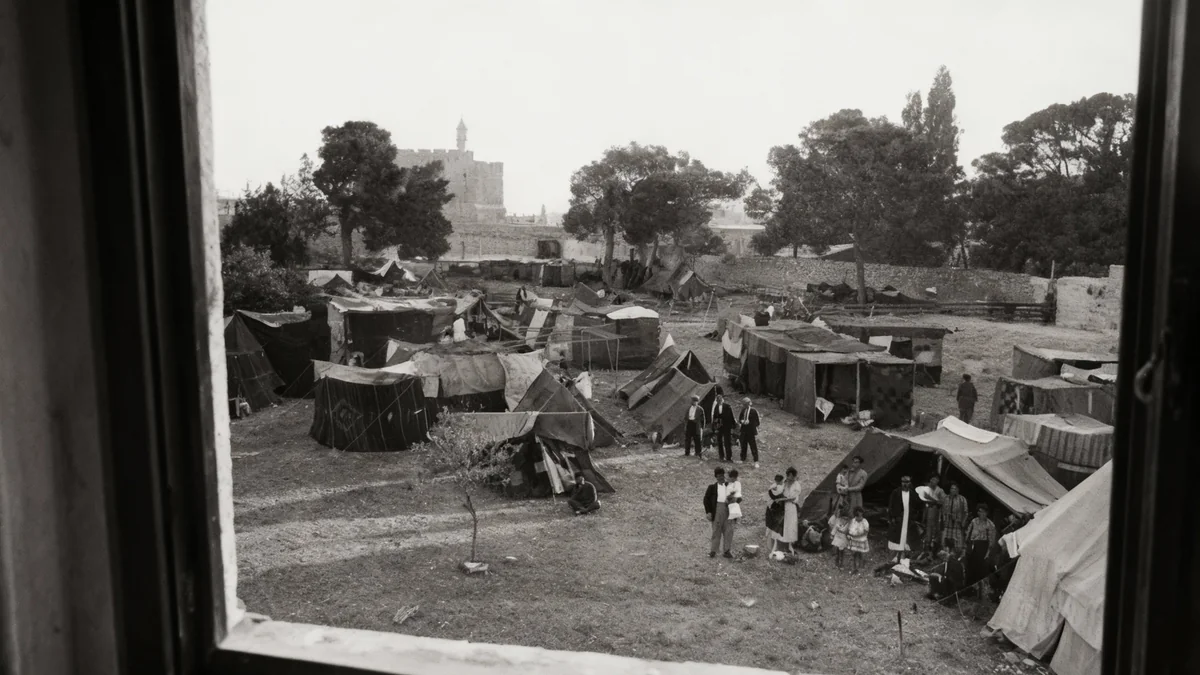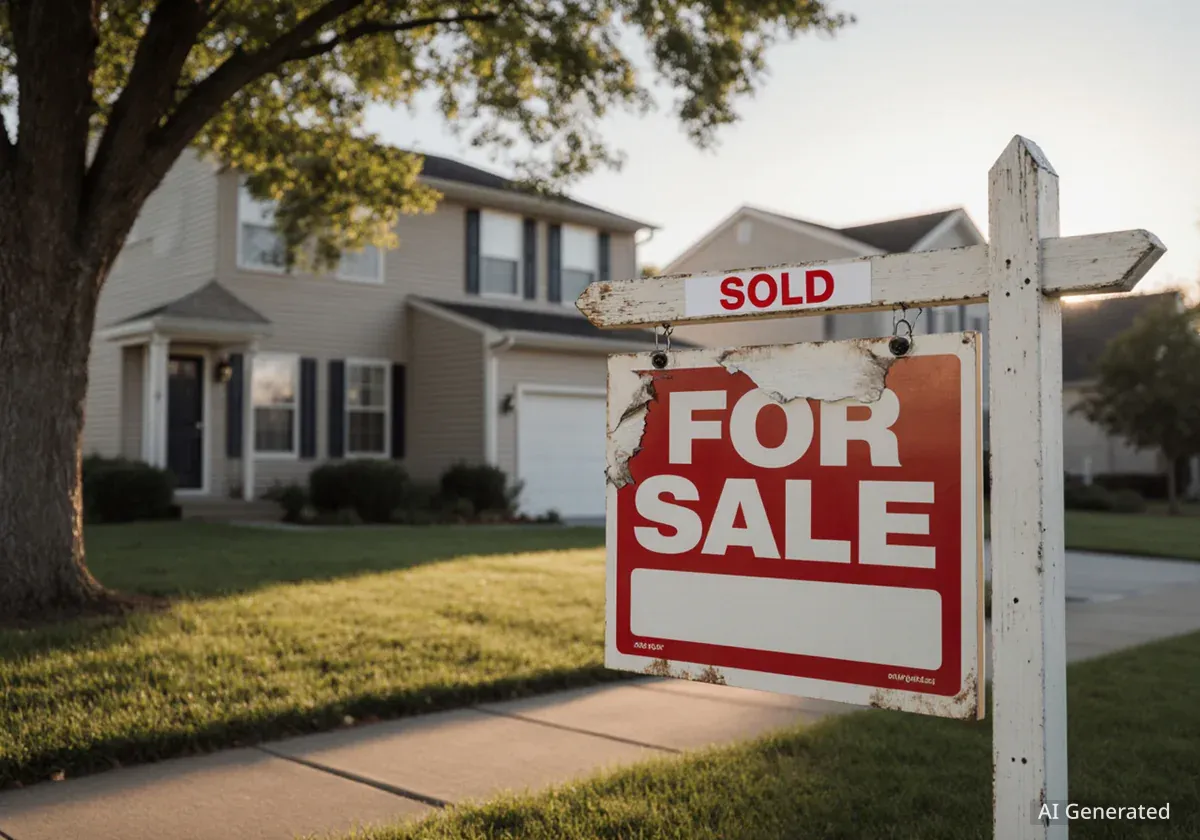A controversial real estate deal in Jerusalem's Old City has placed the historic Armenian Quarter at the center of a struggle for its future. A 98-year lease agreement, signed in 2021, transfers control of a significant portion of the quarter's land to a private developer for the construction of a luxury hotel, sparking intense opposition from the local community who fear it could erase their centuries-old presence.
The agreement involves a plot known as Goveroun Bardez, or the "Cows' Garden," which constitutes nearly a quarter of the entire Armenian Quarter. Residents and community leaders argue the deal was made improperly and threatens the cultural and demographic fabric of one of the Old City's most ancient communities.
Key Takeaways
- A 98-year lease was signed in July 2021 for 11,500 square meters of land within the Armenian Quarter, known as the "Cows' Garden."
- The deal, signed by the Armenian Patriarch, allegedly lacked the required approval of the Brotherhood of St. James/Holy Synod, raising questions about its legality.
- The leased land represents approximately 25% of the Armenian Quarter and is slated for the development of a luxury hotel.
- Local Armenians fear the project will displace residents, disrupt community life, and serve as a foothold for Israeli settlers, altering the character of the quarter.
A Centuries-Old Community at a Crossroads
The Armenian presence in Jerusalem is one of the oldest continuous Christian communities in the world. It dates back to the early 4th century, shortly after Armenia became the first nation to adopt Christianity as its state religion in 301 AD. For over 1,600 years, a vibrant community of monks, pilgrims, and families has thrived within the city.
The Armenian Quarter, located in the southwestern corner of the Old City, developed around the St. James Monastery. It is the smallest of the four quarters but holds immense historical and cultural significance for Armenians worldwide. For generations, this enclave has been a sanctuary, preserving a unique heritage, language, and tradition within the walls of Jerusalem.
The Four Quarters of the Old City
Jerusalem's Old City is traditionally divided into four distinct neighborhoods: the Christian Quarter, the Muslim Quarter, the Jewish Quarter, and the Armenian Quarter. The Armenian Quarter's land has been stewarded by the Armenian Patriarchate, which was established in 638 AD, making it a vital institution for the global Armenian diaspora.
However, the area's stability has come under pressure. The political dynamics of East Jerusalem, particularly since its occupation by Israel in 1967, have created an intense and often contentious real estate market. Various groups have sought to acquire property in strategic locations, leading to demographic shifts and heightened tensions among the city's diverse communities.
The Details of the Goveroun Bardez Lease
The current controversy centers on a contract signed on July 8, 2021. The agreement grants a 98-year lease for the "Cows' Garden" property to Danny Rubinstein, an Australian-Jewish businessman. The signatories on behalf of the Armenian Patriarchate were Patriarch Nourhan Manougian, his deputy Archbishop Sevan Gharibian, and Father Baret Yeretzian, who was the head of the real estate department at the time.
The plan for the 11,500-square-meter plot is the construction of a luxury hotel. Opponents of the deal claim it was executed without the legally and canonically required approval of the Holy Synod, the governing body of the Patriarchate. This procedural failure is the primary basis for legal challenges and community protests aimed at nullifying the contract.
The leased area of 11,500 square meters makes up about 25% of the total area of the Armenian Quarter. This land is not just empty space; it includes the community's main parking area and provides access to homes, schools, and religious sites.
The location of the "Cows' Garden" is highly strategic. It sits along a main access route to the Western Wall, the holiest site for Jewish prayer, which is located in the adjacent Jewish Quarter. This proximity has fueled fears among Armenian residents that the luxury hotel could eventually be converted into a settlement outpost, fundamentally altering the quarter's identity.
Community Protests and Fears for the Future
The consequences of the land deal extend far beyond a simple real estate transaction. For the Armenian community, the loss of this land is seen as an existential threat. The practical implications are immediate: losing the only large parking area would create significant logistical hardships for residents, schools, and the church.
Deeper concerns are rooted in the potential for demographic change. Residents worry that the development will bring in a new population, increase harassment from extremist settlers, and erode the social fabric that has sustained their community for centuries. They point to similar transactions involving properties of the Greek Orthodox Patriarchate, such as the Petra and Imperial hotels, as examples of how such deals can lead to the establishment of settler presences in non-Jewish quarters.
"If we lose the ‘Cows’ Garden,’ it will be the beginning of the gradual end of the Armenian presence in Jerusalem. Without vigilance and loyalty to our nation, our ancestors and the honorable clerics who preceded us, we will lose Jerusalem — the Jewel of the Holy Land."
The community has responded with sustained protests, vigils, and legal action. Many hold the leadership of the Armenian Patriarchate accountable, accusing them of mismanagement and betraying the trust placed in them to protect the community's ancestral lands. The internal division has added another layer of complexity to an already fraught situation.
A Broader Pattern in the Old City
The struggle over the Armenian Quarter's land is not an isolated incident. It reflects a broader, long-term trend of politically motivated real estate acquisitions within Jerusalem's Old City. Since 1967, settler organizations, sometimes with government support, have actively worked to increase the Jewish presence in East Jerusalem, including the Old City's Christian and Muslim Quarters.
These efforts often involve complex legal maneuvers, leveraging financial pressure, and exploiting internal divisions within other religious institutions. The goal is to secure properties in strategic locations, particularly those near the Jewish Quarter and holy sites.
For the Armenian community, the fight for the "Cows' Garden" is more than a dispute over property. It is a fight for their survival in a city they have called home for nearly two millennia. The outcome of this conflict will likely have lasting implications not only for the Armenians but for the delicate, multicultural balance of Jerusalem's Old City.





